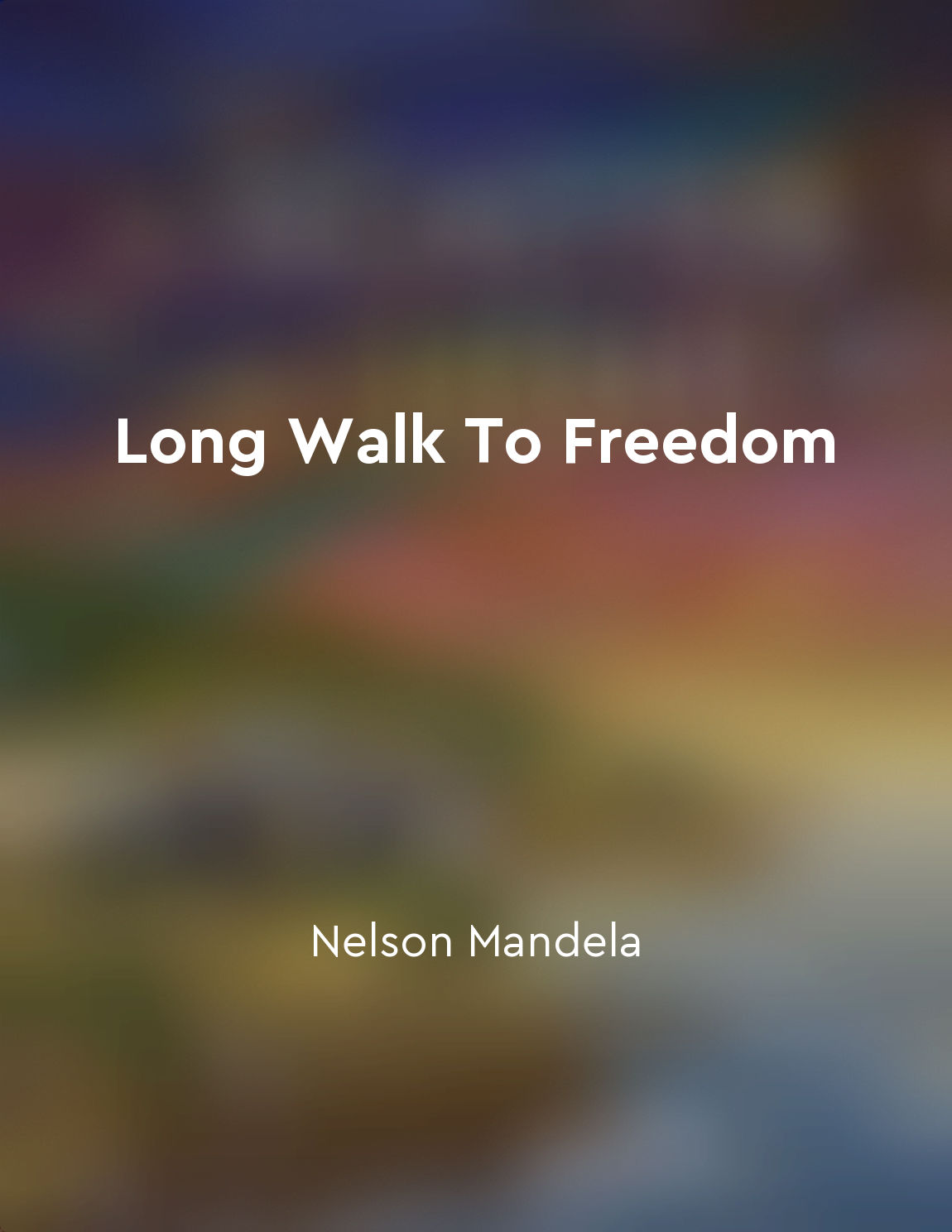Resisting the dehumanization of apartheid from "summary" of Kaffir Boy by Mark Mathabane
Resisting the dehumanization of apartheid was a daily battle for black South Africans like myself. The oppressive system sought to strip us of our humanity, reducing us to nothing more than lowly servants to the ruling white minority. Apartheid laws dictated where we could live, work, and even walk, further reinforcing our status as second-class citizens in our own land. Despite the constant degradation and discrimination we faced, my people found ways to resist the dehumanization forced upon us. Through acts of defiance, both large and small, we asserted our dignity and humanity in the face of overwhelming odds. Whether it was standing up to brutal police officers or sharing stories of our struggles with one another, we refused to be reduced to mere objects of oppression. One of the most powerful forms of resistance was education. Despite the limited opportunities available to black students under apartheid, we saw education as a means of empowerment and liberation. By acquiring knowledge and skills, we were able to challenge the dehumanizing narrative of apartheid and envision a future where we could be free from its shackles. Another form of resistance was community solidarity. In the townships where we were forced to live, we banded together to support one another in times of need. Whether it was sharing food, shelter, or resources, we relied on each other to survive the harsh realities of apartheid. This sense of unity and collective strength was a powerful force against the dehumanization we faced on a daily basis. Despite the overwhelming odds stacked against us, we refused to let apartheid strip us of our humanity. Through acts of resistance, education, and community solidarity, we fought back against the dehumanizing forces that sought to crush our spirits. Our resilience and determination in the face of oppression serve as a testament to the power of the human spirit to endure and overcome even the most insidious forms of dehumanization.Similar Posts
Cultivating empathy and compassion
To cultivate empathy and compassion is to engage with the world beyond oneself. It requires a willingness to step outside of on...
Systemic inequalities perpetuate discrimination and injustice
The idea that systemic inequalities perpetuate discrimination and injustice is a complex and pervasive issue that affects indiv...
Practice simplicity and moderation
Gandhi believed in living a simple and moderate life. He practiced what he preached, choosing to wear simple clothes and live a...

Allyship requires action
Allyship is not just about words; it's about action. It's about showing up for others, standing with them, and actively working...

Never losing hope for a better future
In the face of adversity, it is easy to succumb to despair and lose sight of the possibility of a brighter tomorrow. Throughout...
Poetry saved me
The power of poetry, dear reader, is something that cannot be underestimated. It has the ability to lift the spirit, to soothe ...

Addressing social inequality
Addressing social inequality was a central focus of our struggle. We understood that a society where one group dominates anothe...

Collaboration and diplomacy for peace
One of the key principles that guided our struggle for freedom was the importance of working together with others, even those w...

Addressing social inequality
Addressing social inequality was a central focus of our struggle. We understood that a society where one group dominates anothe...
